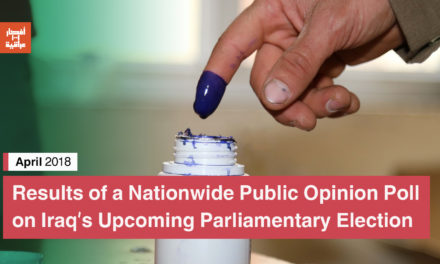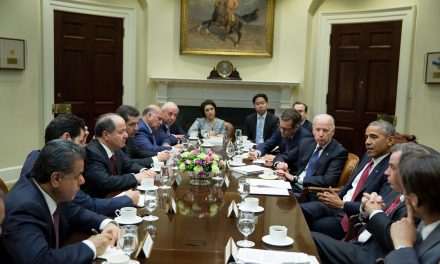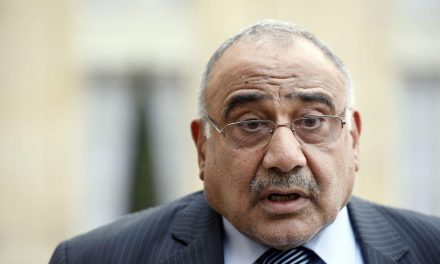The Sadrist demonstrations have become a staple of Friday afternoons in Baghdad’s Tahrir (freedom) Square. Last week’s demonstrations drew more people than usual based on Muqtada al-Sadr’s demand that his loyal supporters come out for a “million man march”. Last year’s demonstration culminated in the storming of the International Zone (IZ), the fortified district that houses the majority of Iraq’s government institutions. Once again on February 11, 2017 Muqtada Al-Sadr directed his followers to protest outside the gates of the IZ, this time for reforms on the electoral commission. Like all of Sadr’s calls, his faithful supporters answered despite the efforts of Iraqi Security Forces (ISF) to restrain demonstrations by closing off streets in fear of another IZ incursion.
While Baghdad has witnessed weekly peaceful demonstrations for nearly two years, this event was not one of them. Sadrist demonstrations turned violent, clashing with the ISF. One ISF officer and four demonstrators were killed, resulting in a total of five Iraqis dying far from the front lines of the war with ISIL. Prime Minister Haider Al-Abadi immediately ordered an investigation to further find details leading to these casualties. Not only are these deaths unnecessary, but such events threaten to endanger Iraqi society during vulnerable times of war and upcoming elections.
The killing of Sadrist demonstrators not only is a catalyst to rally more support for Sadr’s cause, but more dangerously begins to vilify ISF and paints them as oppressors, much like under Saddam Hussein’s Ba’athist regime. This outcome is dangerous for the ISF as Saturday’s events could undo three years of fighting ISIL that has won back popular support for the military. ISF were only doing their duty of protecting government institutions. Last year’s storming of the IZ was met with no retaliation from ISF. However, this time the ISF were given clear orders to prevent such an incident from happening again.
No state would tolerate vandalism in demonstrations let alone storming of government buildings and violence, but reoccurrence of violent incidents will be difficult to counter. Therefore, Sadr must stop using violence as a threat to the government if they do not immediately respond to his demands, giving his followers a misleading message of encouragement. If he is to continue to demand demonstrations from his followers, his messages must stop mentioning storming the IZ as a last resort and emphasize only peaceful measures for his followers to voice themselves.

Pro-Sadr Facebook pages spewing anti-ISF propaganda.
This clash between demonstrators and ISF is dangerously happening at a time where tensions always rise as provincial and federal elections near, putting more emphasis on the importance of the ISF to ensure stability. However, if the people begin to lose trust in the security forces because of events like last Saturday, then it increases the level of instability the state could face come September’s provincial election. Violent demonstrations must be condemned and not tolerated in order to prevent vilifying ISF. The ISF as well need to form new methods of handling demonstrations getting out of hand such as rubber bullets and water cannons.
In response to these deaths, Sadr condemned violence of ISF on demonstrators but also claimed no responsibility for the actions of individual demonstrators as he claims he warned his supporters not to withdraw at this time, despite also claiming for a stronger response next time around. This is a typical move by Sadr who exempts himself of all responsibility whenever his suspects are of no utility to him anymore. Sadr pulled the same stunt last year after the storming of the IZ and politicians were chased out by his followers. He claimed no politician or party represented him despite his own Ahrar bloc members were championed around the IZ on the shoulders of the same demonstrators that chased other members of parliament out.
Too many times has Sadr taken advantage of Prime Minister Abadi’s openness to peaceful demonstrations and determination to implement reform. Whenever Abadi has stated intention to reform, whether towards his cabinet or other branches of government, Sadr emerges with his own terms of reform to be implemented and threatens the Prime Minister to make good on his word. Sadr being one of the few political allies of Prime Minister Abadi, knows very well how difficult it is for Abadi to implement his reforms but Sadr takes advantage of his political relationship with the Prime Minister as he was significantly sidelined by previous Prime Minister Nouri Al-Maliki.
Prime Minister Abadi needs to hold Sadr accountable, as his actions will have devastating effects on the ISF and puts Iraq in a far more vulnerable position than it already is. It also undermines the work the ISF has accomplished on the battlefield during Abadi’s term in office which comes to an end April 2018. If Abadi wants any chance of remaining in office or cementing his success in the history books, he has to stop Sadr from wreaking havoc in Baghdad while Mosul is on the cusp of liberation as it will undermine the entire war effort.

Hamzeh Hadad
Hamzeh Hadad is an Iraqi writer and commentator. He holds a Bachelor of Arts with honours from the University of King’s College.










